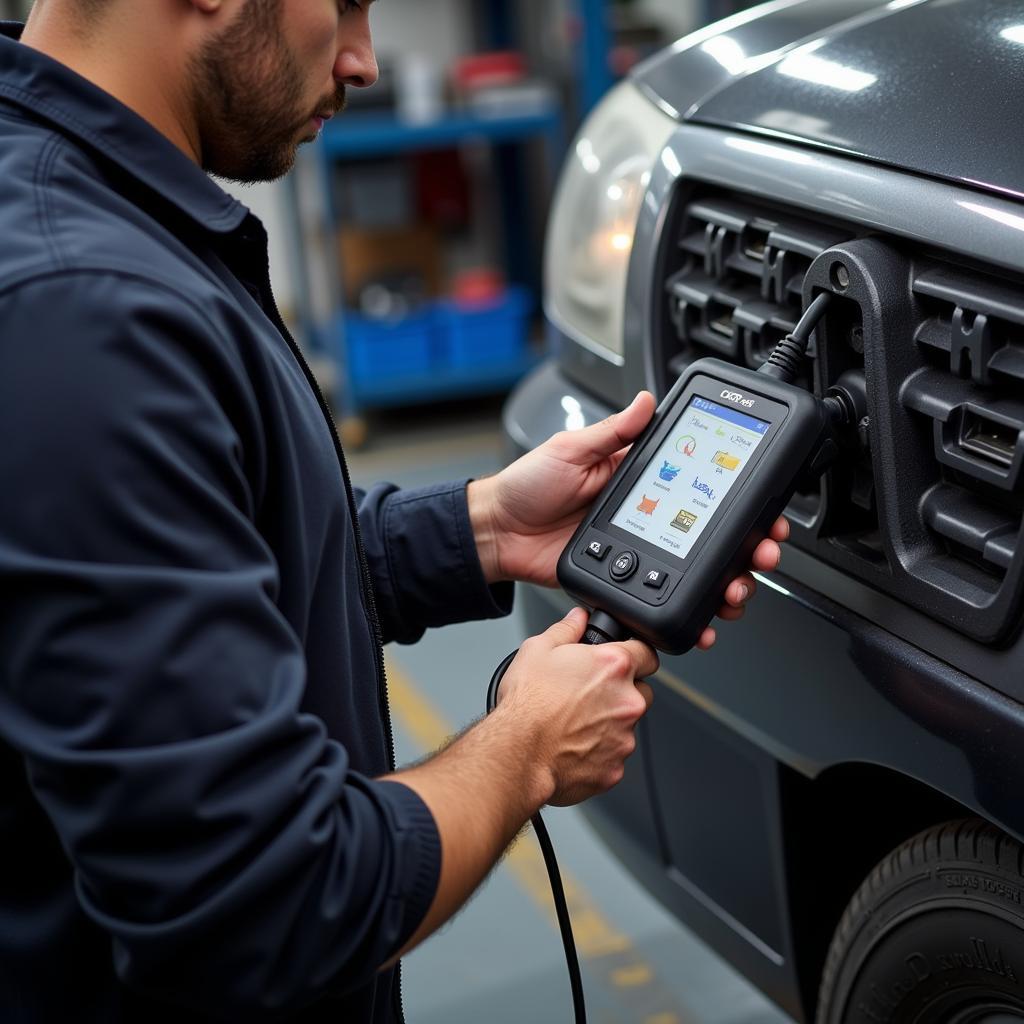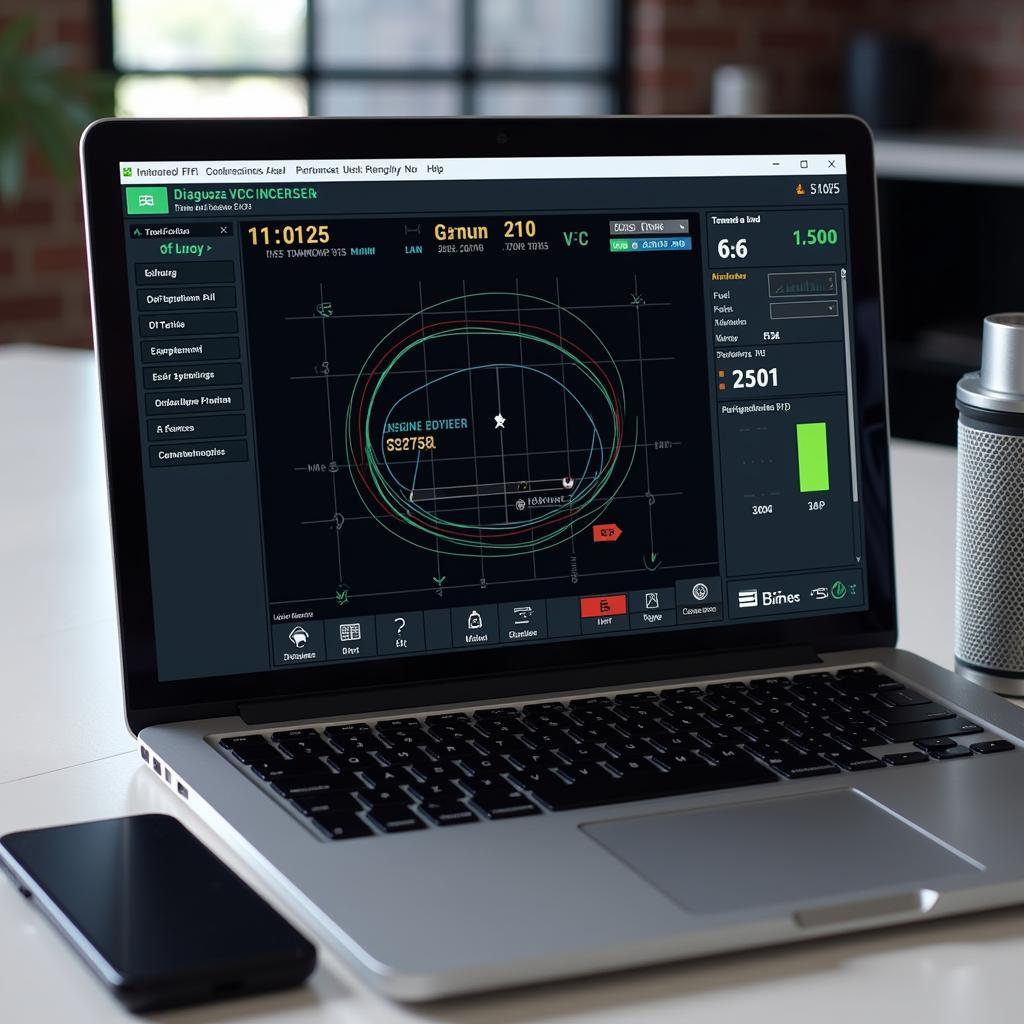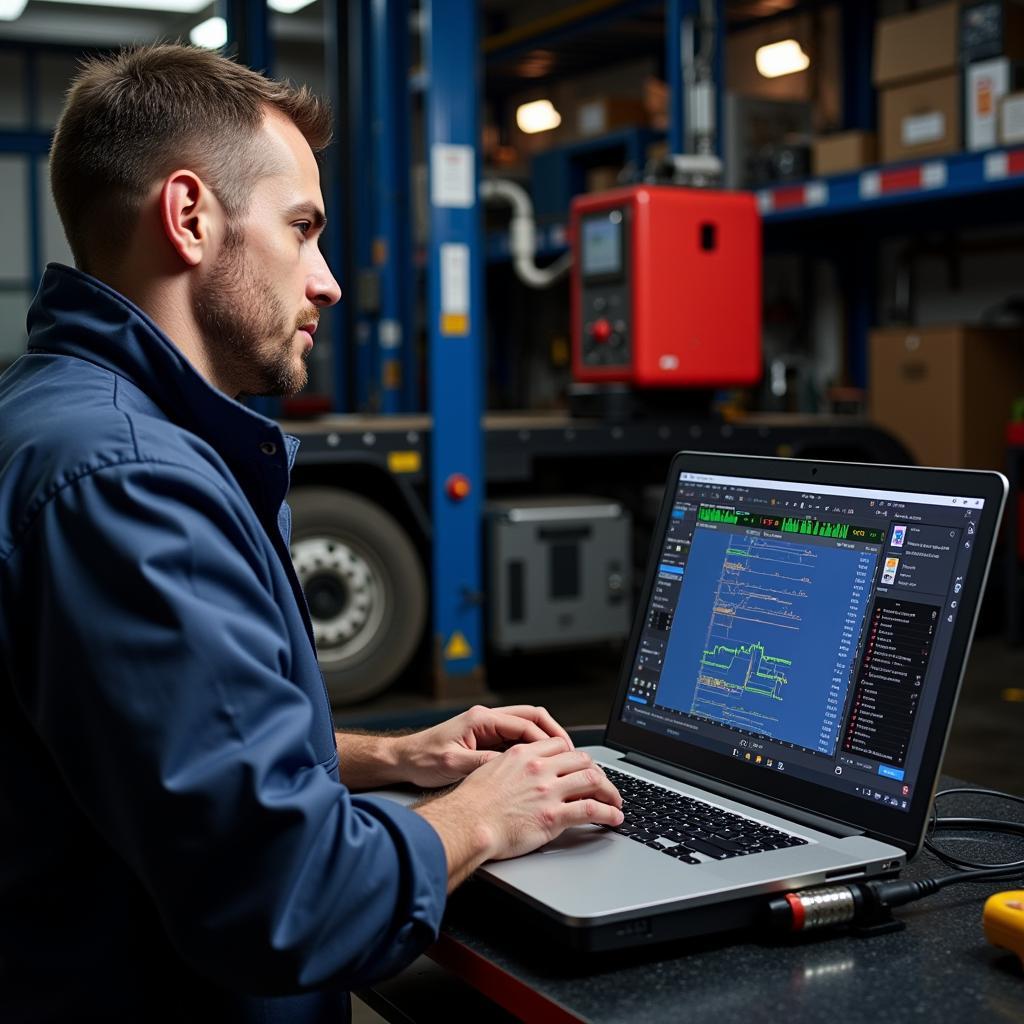Diesel cars, renowned for their torque and fuel efficiency, utilize sophisticated electronic systems controlled by an Engine Control Unit (ECU). When issues arise, accurate diagnostics are crucial, and this is where a Diagnostic VCI (Vehicle Communication Interface) becomes indispensable. This guide delves into the world of diagnostic VCIs specifically designed for diesel cars, exploring their functions, benefits, and how they empower mechanics and enthusiasts alike.
 Diesel Car Diagnostics
Diesel Car Diagnostics
Understanding Diagnostic VCIs for Diesel Cars
A diagnostic VCI acts as a bridge between your diesel car’s ECU and a diagnostic software application, typically on a laptop or tablet. It allows you to communicate with the vehicle’s onboard computer, retrieve diagnostic trouble codes (DTCs), monitor live data streams, perform actuator tests, and even program modules.
The Importance of Specialized Diesel VCIs
While generic OBD-II scanners can read basic engine codes, diesel cars often utilize manufacturer-specific protocols and require specialized VCIs for comprehensive diagnostics. These specialized VCIs offer access to a wider range of modules, including those controlling the fuel injection system, turbocharger, diesel particulate filter (DPF), and exhaust gas recirculation (EGR) system, which are critical for diesel engine operation.
 Diesel VCI Software Interface
Diesel VCI Software Interface
Benefits of Using a Diagnostic VCI for Diesel Cars
- Accurate Diagnostics: Pinpoint the root cause of complex issues, saving time and money on unnecessary repairs.
- Enhanced Functionality: Access and analyze data from a broader spectrum of modules compared to generic scanners.
- Live Data Monitoring: Observe real-time sensor readings, aiding in performance tuning and troubleshooting intermittent problems.
- Component Activation: Test individual components like injectors and solenoids to confirm their functionality.
- Software Updates: Certain VCIs allow for flashing updated software to ECUs and other modules.
Key Features to Consider
When choosing a diagnostic VCI for your diesel car, consider factors such as:
- Vehicle Compatibility: Ensure the VCI supports your car’s make, model, and year.
- Software Features: Look for user-friendly software with comprehensive diagnostic capabilities, live data graphing, and reporting functions.
- Update Frequency: Regular software updates are crucial to stay current with the latest vehicle models and protocols.
- Technical Support: Reliable technical support is invaluable for troubleshooting and navigating complex issues.
 Mechanic Using Diesel VCI
Mechanic Using Diesel VCI
Conclusion
Investing in a quality diagnostic VCI tailored for diesel cars is essential for professional mechanics and informed DIY enthusiasts. The ability to perform in-depth diagnostics, monitor live data, and access manufacturer-specific information empowers users to maintain their vehicles effectively, diagnose problems accurately, and optimize engine performance. Remember to prioritize vehicle compatibility, software functionality, and reliable technical support when making your selection.

Leave a Reply